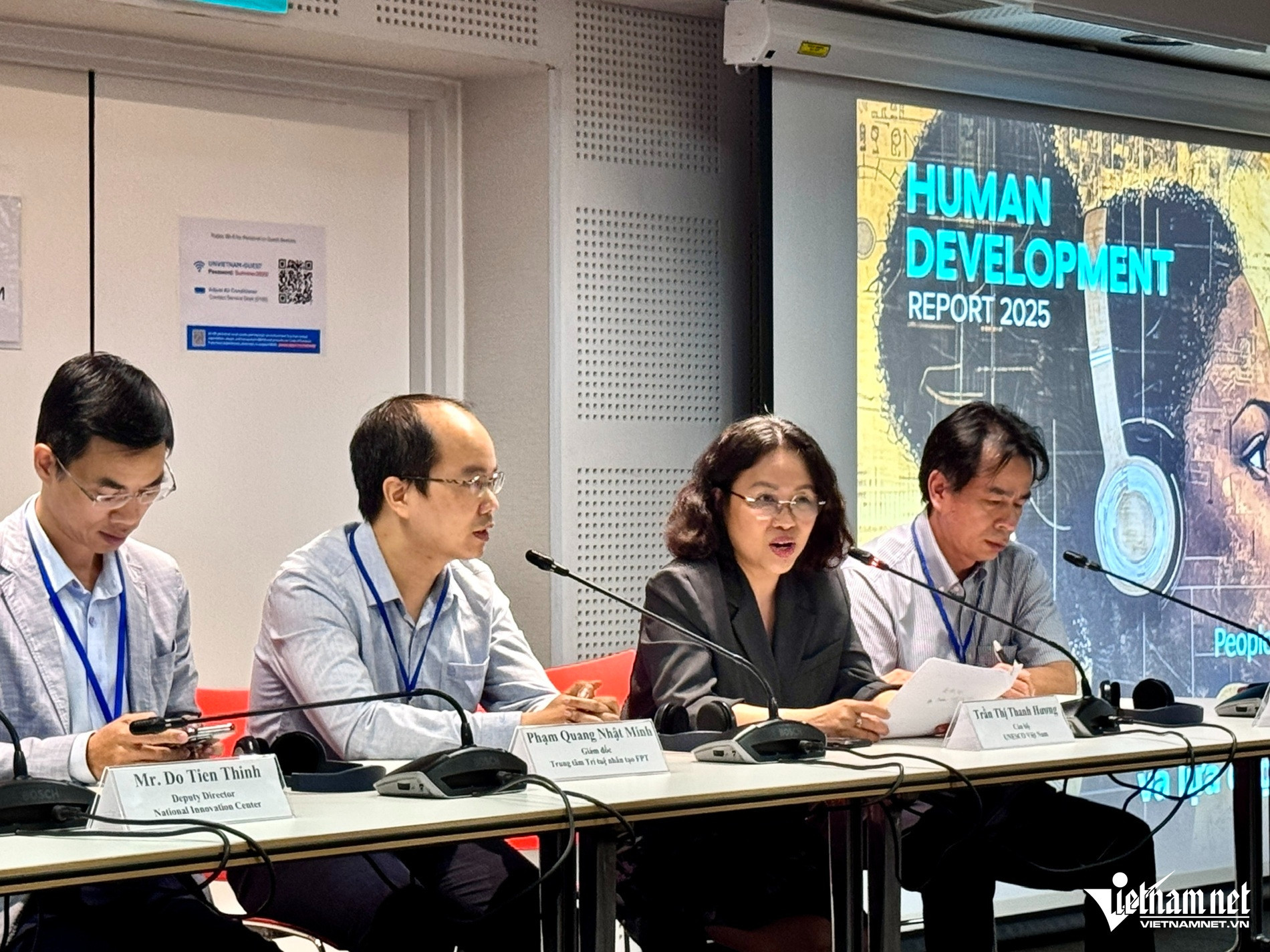At the launch event for the 2025 Human Development Report hosted by the United Nations Development Programme (UNDP) in Hanoi on May 12, experts from the UN, academia, and private sector praised Vietnam’s AI initiatives as a strategic driver of human progress.

This year’s report, themed “The Age of Artificial Intelligence and Choices for Human Development,” emphasizes AI as a pivotal tool to advance human potential. Vietnam's Human Development Index (HDI) reached 0.766 in 2023 - ranking 93rd out of 193 countries - up from 0.499 in 1990. UNDP attributed this rise to the country’s sustained digital transformation and growing emphasis on AI integration.
Resolution 57: A national AI turning point
Resolution 57 sets a clear objective for 2030: science, technology, and innovation - especially AI - must play a significant role in enhancing Vietnam’s cultural, social, and human development values, ensuring HDI remains above 0.7.
UNDP and UNESCO experts noted Vietnam’s rapid and impressive digital transformation, where AI has become central to national discourse and policymaking.
Vu Thi Thanh of the Institute for Human, Family and Gender Studies emphasized that AI and innovation are now national priorities, evidenced by initiatives such as the National Digital Transformation Program to 2025 (with orientation to 2030), the Fourth Industrial Revolution Strategy to 2030, and the National AI Strategy to 2030.
UNESCO official Tran Thi Thanh Huong remarked that Resolution 57 reflects “Vietnam’s strong political will and bold action” in governing and promoting AI, adding that the country has laid solid foundations in digital infrastructure, AI readiness, and workforce development. She believes Vietnam can realistically position itself as a future AI powerhouse.
Still, she urged that AI development must remain ethical, inclusive, and environmentally sustainable to ensure long-term benefits for society.
AI must serve humanity, not overshadow it
UNESCO’s Recommendation on the Ethics of Artificial Intelligence, adopted by 193 member states in November 2021, offers the world’s first global framework for responsible AI governance.
Associate Professor Cao Thu Hang from Communist Review pointed out that while Vietnam has started incorporating AI ethics into government resolutions and draft legislation, it still lacks a dedicated national AI ethics framework. She called for a standardized code of ethics applicable across all organizations and sectors.
Hang stressed that true human development cannot occur if privacy is violated, autonomy is compromised by algorithms, or creativity is diminished due to over-reliance on AI. Thus, ethical AI must be at the heart of all development efforts.
She also proposed enhancing public education on AI, improving legal frameworks, and boosting international cooperation to support ethical and sustainable AI deployment.
Strategic focus and institutional leadership are key
Jonathan London, a UNDP and UNICEF advisor, advised that Vietnam must carve out competitive niches in the AI economy, such as chip packaging, testing, and agricultural optimization through AI-based crop analysis. Empowering citizens with digital tools and knowledge is essential to fully harness these opportunities.
According to London, AI holds the potential to help Vietnam overcome structural challenges and drive inclusive economic growth - but only if the state plays a central role in governance, investment, and policy design.
“Technology alone is not the key,” he said. “The true enabler is institutional readiness and smart policy frameworks.”
Du Lam